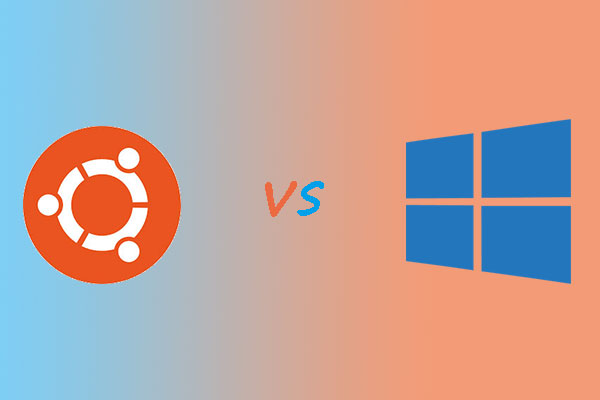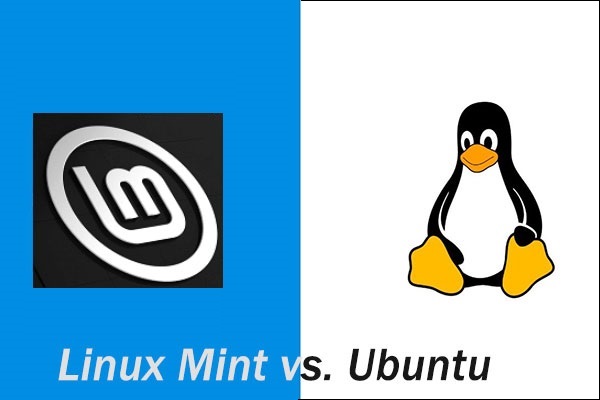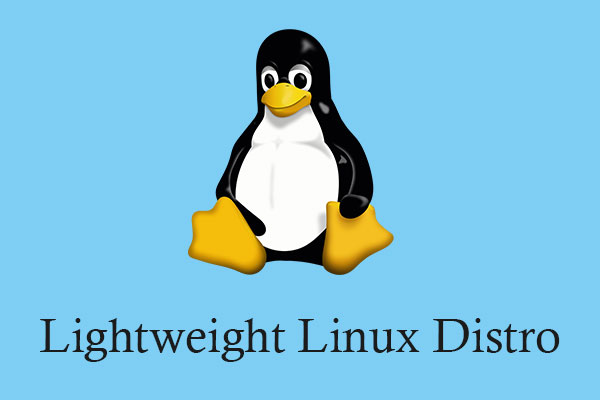Debian and Ubuntu have tight connections, but they are very different in many aspects. Do you want to know their differences? In this post, MiniTool Partition Wizard explains Debian vs Ubuntu to you.
Linux Debian and Ubuntu are the most dominant distros out there in the market. Debian was first developed in 1993 while Ubuntu first appeared more than a decade later – in 2004. Ubuntu was based on Debian. It was born to solve Debian’s conservative and ease of use problems, but with the accumulation of time, ubuntu gradually developed its own style and system.
Now, Debian and Ubuntu have many different points. But many people don’t know what the differences are and they ask questions about Debian vs Ubuntu. In the following content, I will explain them to you.
Debian vs Ubuntu: Release Cycle
Debian has three different releases; stable, testing, and unstable. Its stable release is rock solid stable but comes with outdated software packages. The outdated packages are not a problem for a server but awful for desktop usages.
Debian unstable release called Sid tests all the latest repositories. Therefore, this release is unstable and may contain many bugs. As for Debian testing release, it is like the compromise between stable and unstable releases. It is relatively stable and Debian project usually engineers their next stable release in the testing branch (this means new technologies).
Actuallyu, using Debian Testing is a lot like using a regular rolling release distribution like OpenSUSE Tumbleweed.
As for Ubuntu, its release cycle is very simple. It has regular releases for desktops and LTS (Long Term Support) releases for servers and workstations. The regular versions are released twice every year and the LTS versions are released once every two years.
Debian vs Ubuntu: Ease of Use
In terms of ease of use, Ubuntu is better than Debian in the following aspects:
1. System Installer
Ubunut’s installer is streamlined. Although it does not give more options, it is much more user-friendly. Debian installer offers much more configuration. It’s good to experienced users but for novices, it’s somewhat messy.
2. Software Policy
Ubuntu includes both free and proprietary programs in the default repositories to make it as easily accessible to the user as possible. In contrast, Debian takes a strict stance on free software. They see proprietary software as a sort of last resort. The project ships all proprietary software in a separate repository that you must manually enable after the install.
As a result, Debian has some trouble with drivers and firmware. You have to enable the repository yourself and install then manually. If you are a gamer, Debian is not your choice, because it may lack necessary graphics drivers, which are essential to gaming. However, Ubuntu supports certain proprietary packages that often consist of graphics drivers.
3. PPAs
Ubuntu has PPAs (personal package archives) that allow developers to easily host Ubuntu software repositories and make them accessible, while Debian doesn’t have PPAs.
Debian vs Ubuntu: Performance
Debian and Ubuntu both perform quite well and feel snappy on most hardware. But Debian performs better in a simple installation, while Ubuntu acts faster, smoother, and quicker on latest computing machines.
The reason may be as follows: Debian is more lightweight than Ubuntu, because it comes with almost no bundled or pre-packed software and features. Ubuntu adds some unique and additional distro-specific features and software into the core, which may speed up its performance on latest computing machines.
Debian vs Ubuntu: Target User Group
Due to the differences in terms of ease of use, you can know that Ubuntu is more suitable for beginners, and Debian is an excellent choice for the expert. Therefore, Ubuntu has a more massive user base including software developers, gamers, designers, and normal day-to-day users who just use the internet, watch/stream movies, edit documents, etc.
Debian vs Ubuntu: Corporate Backing
DebianDebian is entirely community-driven. It is maintained and developed by programmers and developers all around the world.
- Pro: This form of development ensures continuity. Several developers who decide to stop working on the project will not affect its development.
- Con: This will cause an undecided stable release cycle.
Ubuntu is developed and maintained by Canonical. This company takes full control over Ubuntu and makes all decisions about Ubuntu.
- Pro: It has a definite release cycle, an official support line, and specific industrial software/hardware support. In addition, Canonical works on Ubuntu’s behalf, making deals with hardware manufacturers for compatibility, and even getting Ubuntu shipped on machines made by Dell.
- Con: Canonical can decide anytime to pull the plug on the active development of Ubuntu, which would disturb not only the active users but also hundreds of other distributions that are based on Ubuntu (e.g., Linux Mint, Pop!_OS, Kubuntu, Xubuntu, etc.), although that happening is highly unlikely.




User Comments :